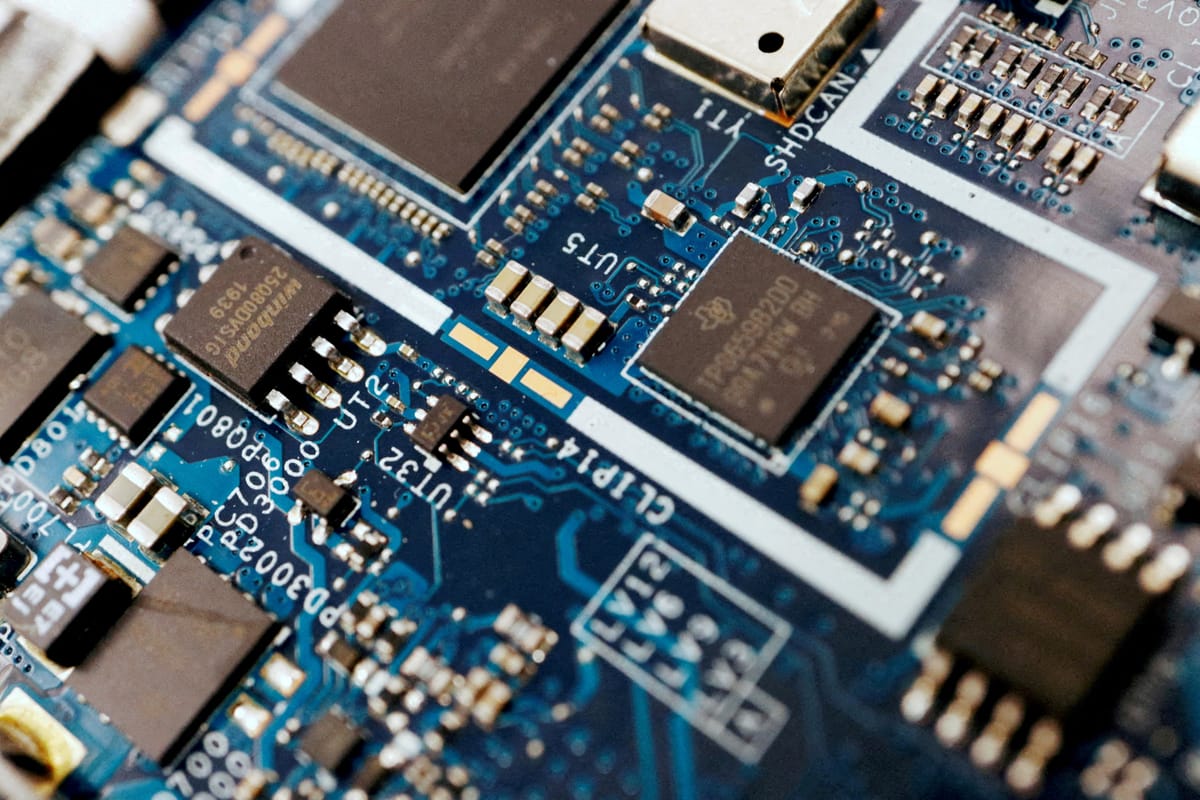U.S. Restricts Tech Exports to China: What's Happening?

So, guess what? The U.S. government just told a bunch of companies to basically hit pause on sending stuff to China. Like, they gotta get permission now, and for some suppliers, the permission they already had? Yeah, that's gone. Three folks who know what's up told us all about it.
This whole thing is probably gonna make things a bit tense with China, right? It seems like they're trying to stop China from getting their hands on certain products that are super important for some key industries. One person put it like this: they're hitting the 'choke points'.
What kind of stuff are we talking about? Well, things needed for making computer chips, like the design software and chemicals. Also, gases like butane and ethane, machines, and even airplane parts. Lots of companies got letters from the U.S. Department of Commerce about these new rules in the last few days.
Companies that make that special software for designing chips, called EDA software, got letters last Friday saying they'd need a license to send it to customers in China. Two of our sources mentioned this. Some of the big players in this software game are companies like Cadence, Synopsys, and a Siemens company called Siemens EDA.
These two sources also said that the Commerce Department will look at each request for a license to ship to China one by one. So, it's not like a total ban, you know? We're not totally sure if this is part of a bigger plan to get some leverage for trade talks while they've put a pause on adding more taxes on goods. The Commerce Department did say they're checking out exports to China that are super important, and that they've even stopped some licenses already or added extra license rules while they're looking into things. The White House didn't get back to us right away when we asked for their side of the story.
After this news dropped, shares for Cadence went down about 10.7%, and Synopsys shares fell 9.6%. Cadence didn't wanna say anything, but Siemens said they're trying to figure out what these new rules mean for sending that chip design software and will share more info stat. China's foreign ministry wasn't happy about it. They told Reuters that the U.S. is messing with how global supply chains work and that Washington is using tech and trade stuff to try and shut out China. They said nothing can stop China's development and progress, and no bullying can shake their goal of doing things on their own.
The CEO of Synopsys, Sassine Ghazi, said on a call with analysts that his company hadn't actually gotten a letter or heard from the government department that handles export controls. He said they know about the reports and talking, but they haven't gotten a notice from that department. Even after the market closed, Synopsys stuck to their prediction for how much money they'll make next year. Their shares, and Cadence's too, actually bounced back a bit after trading finished for the day.
Okay, but seriously, if Chinese companies can't get their hands on these chip design tools, it would be a big deal for that industry. Chinese companies that design chips really rely on this top-notch software from the U.S. Back in April, a Chinese news agency said that Synopsys, Cadence, and another Siemens company basically control over 70% of the market for this stuff in China. Some Chinese companies that use Synopsys and Cadence software include design company Brite Semiconductor, Zhuhai Jieli, and a company called VeriSilicon that provides parts for chip designs. VeriSilicon and Brite didn't answer our emails when we asked for comments, and calls to Zhuhai Jielei didn't go through either.
Now, here's a slightly different take. Three sources in the chip design software industry said on Thursday that business in China is still going on as usual. They're waiting to hear more details on how these new rules will actually be put into place. One investment director, Nori Chiou, from White Oak Capital Partners in Singapore, thinks this whole thing is another move that won't work. He believes it will just help China get better at doing things themselves, just like with making semiconductors. He also mentioned that there are lots of fake versions of these design tools out there, and they're not hard to get. Chiou figures that once the normal ways of getting the software are blocked, a lot of Chinese companies making their own versions of this software will do really well.
Speaking of doing things themselves, some Chinese companies that offer alternatives to the U.S. software are Empyrean Technology and Primarius Technologies. Their shares actually jumped quite a bit! Also, in 2023, Huawei said they had already created their own chip design tools that can be used for more advanced tech. They haven't been able to use U.S. suppliers since 2019.
Cutting off these software makers from their Chinese customers could really hurt their bottom line. A former Commerce Department official said that these companies are the real 'choke point'. He also said that rules to limit sending this software to China have been thought about since the first Trump administration, but they were decided against because they seemed too aggressive. China is a pretty big deal for these companies. Synopsys gets about 16% of its yearly money from China, and for Cadence, it's around 12%. Synopsys works with companies like Nvidia, Qualcomm, and Intel, providing software and hardware for designing advanced chips. The Financial Times newspaper reported earlier that the Trump administration had told these software companies to stop selling their services to Chinese groups.


